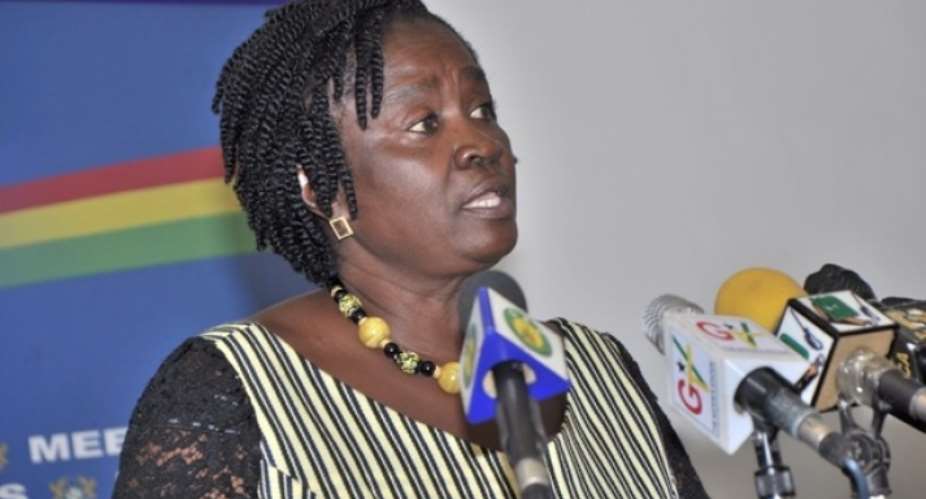The Ghana Education Service (GES) has revealed that only about 60 percent of students who write the Basic Education Certificate Examination (BECE) make it into Senior High Schools (SHS). Beyond that, figures from WAEC suggest that over 1.6 million students have failed the BECE over the past decade. So where are those who the system ‘failed?’ In addressing this problem of access to secondary education, the Government has introduced a progressively Free SHS Policy starting this 2015/2016 academic year. According to the Government, “the need to make SHS progressively free was to help vulnerable groups by removing financial barriers and improving access to SHS and addressing inequalities in opportunities to transition from JHS to SHS” (Daily Graphic, 28/08/2014).
As I have mentioned in earlier publications, the solution to access to secondary education does not lie in paying fees of day students or boarders as the government proposes. Instead of paying the fees of 313,000 senior high school (SHS) day students under the so-called progressively free SHS policy, invest the earmarked budget of GHC 42.7million in the provision of the teaching and learning resources/items that goes into the price build of school fees. The schools are charging parents levies that the state ought to bear. By this approach you will address inequity issues that the current policy imposes in respect of providing support for only day students. If more parents decide in 2016/2017 academic year to redraw their children from the boarding houses to qualify for this intervention, what happens? How would the government fund that?
In the medium to long term, the government (the current or any future one) should endeavour to scrap the BECE in favour of a 6- years secondary education (S1-S6). At the end of S3, students choose which subjects they wish to specialise from S4-S6. At this point, they could write WEAC accredited exams to guide student placement. In other words, merge JHS and SHS as the objective of the JHS concept has even failed. All we need to do is to look for a cluster of JHS around a particular SHS and merge them under one management and administration, which could improve efficiency in the education service delivery. Free SHS is not the panacea to an improved access to and quality of secondary education. Having read the government’s Secondary Education Improvement Programme (SEIP) policy document, I remain convinced that the underlying problems of secondary education are not being addressed properly and our nemesis is far from over.
It is the life and health of our future as a nation state we talking about here!





 Former Kotoko Player George Asare elected SRC President at PUG Law Faculty
Former Kotoko Player George Asare elected SRC President at PUG Law Faculty
 2024 elections: Consider ‘dumsor’ when casting your votes; NPP deserves less — P...
2024 elections: Consider ‘dumsor’ when casting your votes; NPP deserves less — P...
 You have no grounds to call Mahama incompetent; you’ve failed — Prof. Marfo blas...
You have no grounds to call Mahama incompetent; you’ve failed — Prof. Marfo blas...
 2024 elections: NPP creates better policies for people like us; we’ll vote for B...
2024 elections: NPP creates better policies for people like us; we’ll vote for B...
 Don’t exchange your life for wealth; a sparkle of fire can be your end — Gender ...
Don’t exchange your life for wealth; a sparkle of fire can be your end — Gender ...
 Ghana’s newly installed Poland train reportedly involved in accident while on a ...
Ghana’s newly installed Poland train reportedly involved in accident while on a ...
 Chieftaincy disputes: Government imposes 4pm to 7am curfew on Sampa township
Chieftaincy disputes: Government imposes 4pm to 7am curfew on Sampa township
 Franklin Cudjoe fumes at unaccountable wasteful executive living large at the ex...
Franklin Cudjoe fumes at unaccountable wasteful executive living large at the ex...
 I'll 'stoop too low' for votes; I'm never moved by your propaganda — Oquaye Jnr ...
I'll 'stoop too low' for votes; I'm never moved by your propaganda — Oquaye Jnr ...
 Kumasi Thermal Plant commissioning: I pray God opens the eyes of leaders who don...
Kumasi Thermal Plant commissioning: I pray God opens the eyes of leaders who don...
